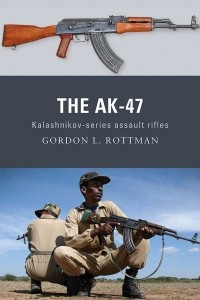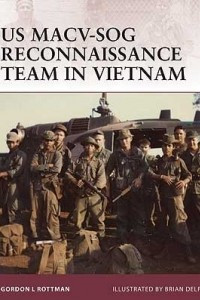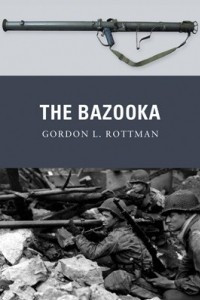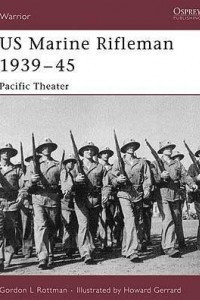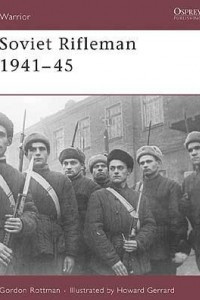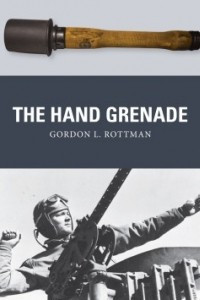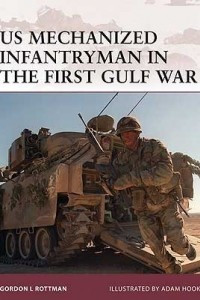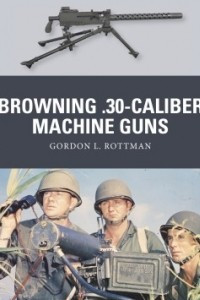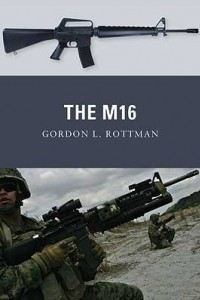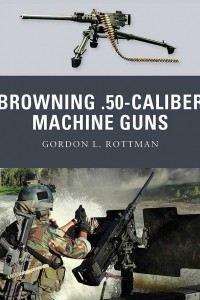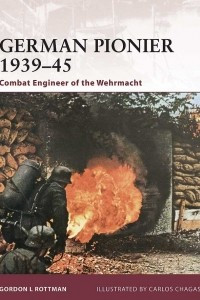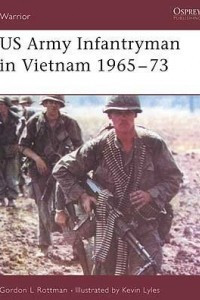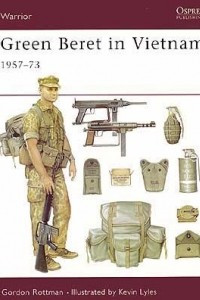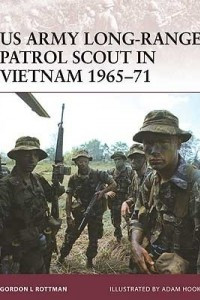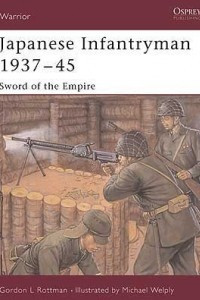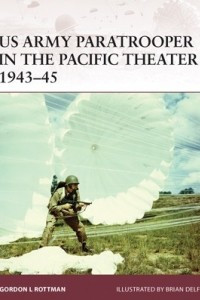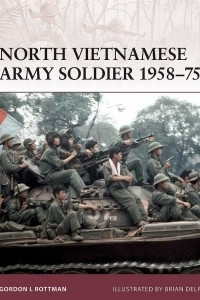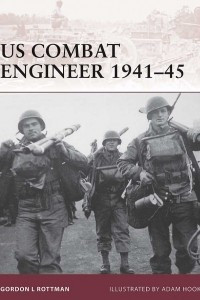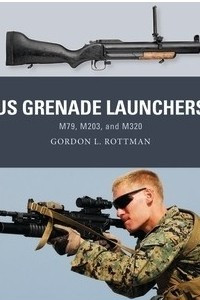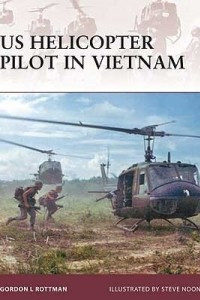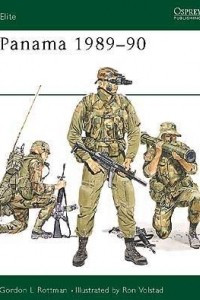- Главная
- Авторы
- Gordon L. Rottman
- Книги Gordon L. Rottman
Книги Gordon L. Rottman
Gordon L. Rottman - автор 26 книг. Из известных произведений можно выделить: Soviet Rifleman 1941-45, Browning .30-caliber Machine Guns, Browning .50-caliber Machine Guns. Все книги можно читать онлайн и бесплатно скачивать на нашем портале.
The Kalashnikov AK-47 is the most ubiquitous assault rifle in the world, with more AK-47s and its variants in use than any other individual small arm. Created by Senior Sergeant Mikhail Kalashnikov, and first adopted by the USSR soon after World War II, its production continues to this day, with an estimated 75 million produced worldwide. This book takes a look at the complete history of the weapo...
In 1964 Military Assistance Command, Vietnam, activated a joint unconventional task force known as the Studies and Observation Group—MACV-SOG. As a cover its mission was to conduct analysis of lessons learned in combat by all branches of service. SOG's real mission was to conduct covert strategic reconnaissance missions into Laos, Cambodia and South Vietnam as well as sabotage and 'Black' psycholo...
Most belligerents entering World War II armed their infantry with bulky and ineffectual anti-tank rifles as their primary means of combating tanks. US planners realized that what infantrymen needed was a relatively lightweight, man-portable anti-tank weapon that was simple to operate, accurate, and capable of knocking out the average tank at a reasonable range, while also being effective against f...
The Marine Corps began World War II with less than 66,000 officers and men. Yet despite suffering 10 per cent of the overall American casualties, the Marines were able to build on their proud traditions and history to transform a small branch of service into a premier combined arms amphibious assault force. Regardless of its expansion by 750 percent, the Corps was able to maintain its sense of tra...
The Soviet rifleman, or frontovik, initially suffered defeats and retreat during the early desperate days of the war, then formed a stubborn defense during the brutal winter of 1941-42, eventually turning the tables at the battles of Stalingrad and Kursk, before victoriously marching into Germany. This book provides a view of the Soviet rifleman in defeat and victory, on the defensive and in attac...
Allowing the user to inflict damage on his opponent within throwing range without leaving cover, the portable, lethally efficient hand grenade is a ubiquitous weapon of modern warfare, and has now found its way into law-enforcement arsenals too. Featuring specially commissioned full-colour artwork and an array of revealing photographs of grenades in use and in close-up, this engaging study explore...
In many ways the end of the Vietnam War left the US army a spent force. Plagued by low morale, drug and race issues, and terrible public relations, the army faced an uphill climb in the effort to rebuild itself. The story of this reconstruction is mirrored in the rise of the Mechanized Infantryman. Deciding that the key to future conflict lay in highly trained and mobile warriors that could be del...
First adopted in 1917, the rugged and reliable Browning .30-caliber machine gun remained in US service into the Vietnam era, and is still occasionally found in use elsewhere even today. Produced in both water-cooled and air-cooled versions, it has been employed in every imaginable role for a machine gun - antipersonnel, antiaircraft, mounted on aircraft as both defensive and offensive armament, de...
The M16 was first introduced in 1958 and was revolutionary for its time as it was made of lightweight materials including special aluminum and plastics. It was first adopted by US Special Forces and airborne troops in 1962 before it was issued to Army and Marine units serving in Vietnam. Its use spread throughout the following decades and a number of variants including submachine and carbine versi...
An enemy in the shadows, the Viet Cong was the military arm of the National Liberation Front, the Communist Party of the Republic of Vietnam. Often working with the North Vietnamese Army, they were a constant factor amid the rice paddies and battlefields throughout the war. Despite fighting an enemy with overwhelming firepower and resources, they ingeniously made use of the local environment and r...
The Browning "50-cal” has become the longest serving weapon in the US inventory. The "fifty” has been employed in every imaginable role for a machine gun. It is considered such an effective and reliable weapon that few countries ever attempted to develop an equivalent weapon. Even the Japanese created a copy of it during World War II when the US was producing literally thousands every month to use...
The RPG-series of weapons is the most widely used family of lightweight antitank weapons in the world today. RPGs have been used not only against their intended targets, but against personnel, fortifications, buildings, soft-skin vehicles, watercraft, and aircraft. Lightweight, relatively compact, easy to operate and maintain, they meet most of the requirements of any armed group. Like any weapon ...
The German Army of World War II collectively referred to its various engineer units as Pioniere (Pioneers). This organization included Pioniertruppen (Pioneer Troops), Bautruppen (Construction Troops), Eisenbahntruppen (Railway Troops), and Technische Truppen (Technical Troops). They were first and foremost assault troops, and construction workers second. They were tasked with overcoming manmade a...
This book tells the compelling story of the average US infantryman in Vietnam. Beginning with conscription, enlistment, Basic Training, and Advanced Individual Training at the Armed Forces Induction Center at Fort Polk (the infamous "Tigerland”), it goes on to explore the day-to-day realities of service in Vietnam, from routine tasks at the firebase to search-and-destroy missions, rocket attacks, ...
Vietnam was the US Special Forces most complex and controversial mission, one that began in 1957 and ended in 1973. Camp strike forces, mobile strike forces, mobile guerrilla forces, special reconnaissance projects, training missions and headquarters duty provided vastly differing experiences and circumstances for SF soldiers. Other fluctuating factors were the terrain, the weather and the shiftin...
The Vietnamese knew the Long-Range Patrol Scouts as "the men with green faces,” a reference to the camouflage paint that they used. Operating in patrols of four to six men these men were like ghosts - scouting far behind enemy lines. This book examines the Long-Range Patrol Scout's superior stealth movement techniques, camouflage and concealment, tracking, counter-tracking, observation, and other ...
This book examines in detail the Japanese Infantryman who was, despite comparisons with the notorious German Waffen SS, an enigma to Westerners. Brutal in its treatment of prisoners as well as the inhabitants of the areas that it conquered, the Imperial Japanese Army also had exacting standards for its own men - strict codes of honor compelled Japanese soldiers to fight to the death against the mo...
The two major Army units that operated in the Pacific - the 11th Airborne Division and the 503rd Parachute Regimental Combat Team (PRCT) launched small-scale operations on extremely difficult, if not, outright dangerous, terrain, while also conducting amphibious assaults, fighting on jungled hills, swamps and mud. The two units were very different, with the 503rd PRCT being reserved for special pu...
Commonly mistaken for the locally raised Viet Cong, the NVA was an entirely different force, conducting large-scale operations in a conventional war. Despite limited armour, artillery and air support, the NVA were an extremely politicized and professional force with strict control measures and leadership concepts. Gordon Rottman follows the fascinating life of the highly motivated infantryman from...
At its peak in World War II, the United States Army contained over 700 engineer battalions, along with numerous independent brigades and regiments. The specialized soldiers of the Engineers were tasked with a wide variety of crucially important tasks including river bridging, camouflage, airfield construction, and water and petroleum supply. However, despite their important support roles, the engi...
In an effort to provide the US infantryman with more firepower to cover the range gap between the hand grenade and the light mortar, the 40mm M79 grenade launcher - a shoulder-fired, single-shot weapon - entered service with US forces in 1961. Reliable, easy to use, and lethally effective, the M79 soon became an iconic symbol of the Vietnam War and had a profound influence on small-unit tactics. ...
Two of World War II's most distinctive weapons, the Panzerfaust and Panzerschreck offered German and other infantrymen the ability to destroy enemy tanks singlehandedly at close ranges. While the Panzerschreck owed its origins largely to the US bazooka, the Panzerfaust was a revolutionary design that was unlike any previous weapon, and went on to influence anti-tank technology and tactics for...
The helicopter changed war forever. This book examines the range of duties helicopter pilots carried out in Vietnam, from air-lift, med-evac and fire-support to landing in high volume crossfires in 'Hot LZs'. Protected by little more than an armoured seat, operating in terrible conditions and flying long hours these brave men led hard, dangerous lives, and casualties were high. Following...
In 1965, soon after the first US combat troops had arrived in Vietnam, it was realized that in some areas the Viet Cong had developed vast tunnel complexes in which to hide from the enemy. It was long known that such complexes existed, but it was not realized just how extensive they were in some areas, how important they were to the Viet Cong, and how difficult it was to detect and neutralize them...
In December 1989 US Army forces, supported by the US Air Force and US Navy, participated in Operation 'Just Cause'--the invasion of Panama. A combination of airborne, helicopter and ground assaults quickly secured key objectives and eliminated organized resistance. Beginning with a brief history of US-Panama relations and the development of the Panamanian Defense Forces, this book focuses principa...


